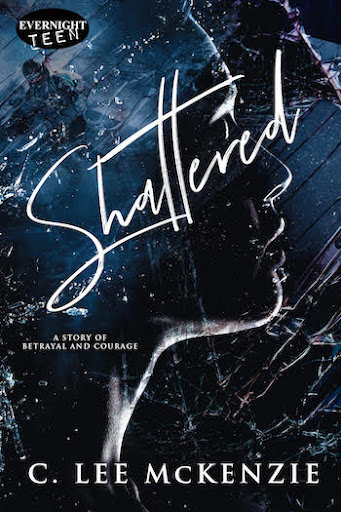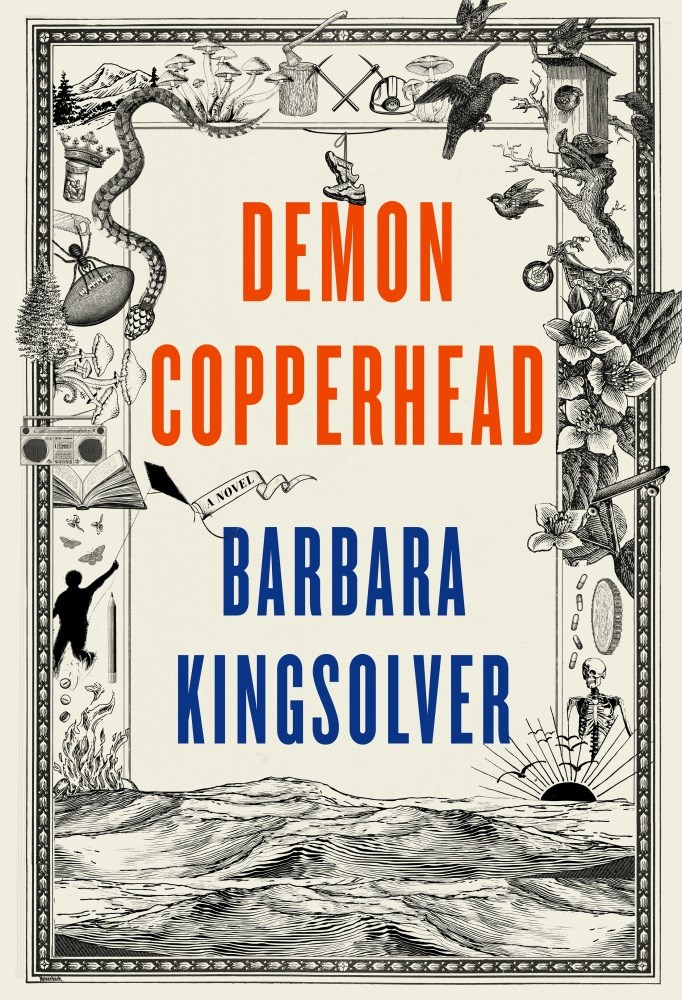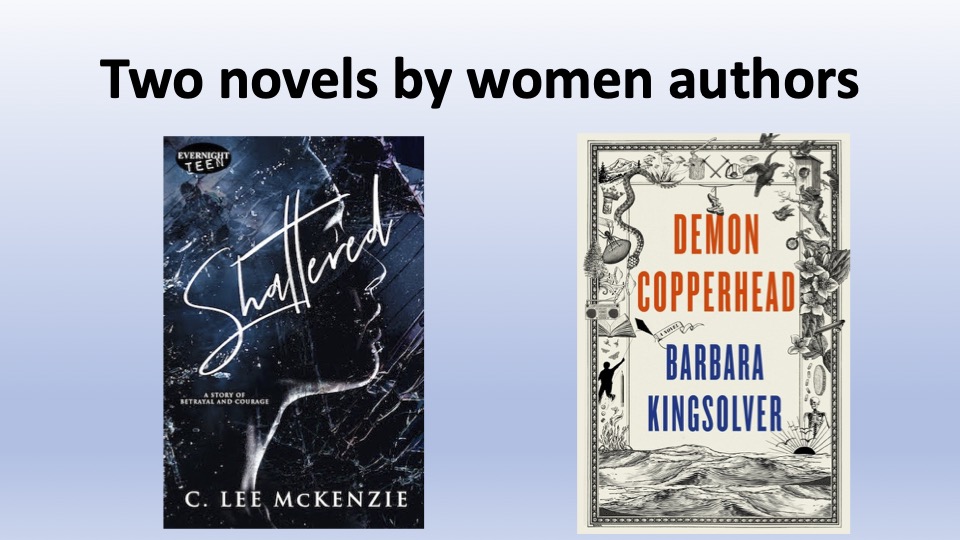Last year, I noted in my reading summary that I didn’t read enough women authors or fiction. So here are two reviews of books I’ve read that meet both categories. I have read several of McKenzies books including Not Guilty which I reviewed in this blog. I have also read Barbara Kingsolver’s The Poisonwood Bible, which I have also reviewed here. Both books appealed to me. Shattered because I enjoy skiing and have a daughter that skied in high school and was a coxswain on a college crewing team. Demon Copperhead is set just west of where I live in Virginia.
C. Lee McKenzie, Shattered

(Evernight Teen, 2021), 295 pages.
This story begins with Libby Brown heading out to get a few runs on the ski hill early in the day as she prepares for the Olympic tryouts. We’re taken along with the 19-year-old as she makes her way to the lift and rides to the top. McKenzie captures all the details, from her friendliness with the lift operator to how one sits back as the lift chair swings into position. Then, as she makes the run, an out-of-bound snowboarder runs her down. Libby wakes up in the hospital to a nightmare. She can’t move her legs. From here, the story continues as Libby struggles to rebuild her life. At first, she’s bitter. She lost her chance at the Olympics. But slowly, especially with the help of another young patient who was swimming star who lost a leg in an accident, she begins her comeback.
Once Libby is out of rehab, she must move downstairs as she can no longer navigate the stairs. Her parents try to make the best of things, but they have another surprise, her mother is pregnant. But she meets and dates guys, wondering how she can have a relationship while confined to a wheelchair. When the suggestion is made that she learn to ski sitting down, she’s reluctant. But in time, she gives it a try. Without her legs, she gains upper body strength and joins a girls crewing team made up of those with disabilities. In time, she gets her life back together. She finds love and makes the Para-Olympic team and finds independence on her own.

As the story unfolds, she learns that her accident wasn’t accidental. She had been set-up to take her out of the Olympics. I read it thinking that the other woman whom she was in competition for the place was the culprit, but at the end there is a surprise.
This is a quick read designed for young adults. This is the third book of McKenzie’s that I have read. The author often tackles with issues faced by young adults and show them learning and thriving despite limitations. As a skier who have generally seen snowboarders as someone unwanted on the hillside (they tend to cut up the snow into ruts and are often rude), I tried not to smirk too much as I read this book.
Barbara Kingsolver, Demon Copperhead

(2022, Audible Books, 2022), 21 hours and 3 minutes or 546 pages.
This is an incredible novel. Kingsolver deals with rural poverty, drug abuse, race relationships, sexual identity, and hopelessness. Yet, as I listened to this book, I found myself cheering on the protagonist, Damon Fields (known as Demon Copperhead for his red hair). The novel begins at his unique birth to his teenage mother and follows him throughout his childhood and teenage years. Demon faces challenges after challenges and while he makes many bad decisions, he always seems to land on his feet as he hopes on day to see the ocean.
The setting for the story is Lee County, Virginia, in the far western part of the state. It’s coal country, but the mining has mostly moved on, leaving behind impoverished towns where people unite around the high school football team. Demon’s father died before his birth (he later learns the details). Then his mother dies of an overdose on his 11th birthday. He becomes a ward of the state.
He is sent to Mr. Crickson’s farm. The old farmer takes in troubled boys no one wants to work them in his fields and to tend his cattle. Here, Kingsolver shows the hard work that goes raising into Burley tobacco. At the farm, Demon meets several other boys who will remain with him for good (Tommy) or bad (Fast Forward) for the rest of the novel.
After Crickson, Social Services moves him to the McCobb family who provides him a bed to sleep in the room where the washer and dryer were located. This had been where they kept the dogs when they had tried breeding them for income. We’re shown how many of those in the foster care system only looking to the money they receive to care for the kids. Mr. McCobb forces to take a job recycling hazardous material. But he also gets to know an Indian who runs a store, who tells him about the underclass in India. Now in America, he helps Demon by giving him plenty of food, something he’s not receiving from his foster family. Demon saves his money and runs away. A truck stop whore steals his money.
Penniless, he finds his paternal grandmother, Betsy Woodall. He’d never seen her before, but she recognizes him because he looks just like the dad who’d died before his birth. She arranges for him to stay with a football coach (Coach Winfield), the husband of her late daughter. He has a daughter, Angus, who becomes another positive force in Demon’s life. The coach appears to care for Demon, but he has his owns “demons” with alcohol. But things begin to look up for Demon as he becomes a star tight end, until he messes up his knee. While he had often used drugs (smoking pot or popping pills at a party with the other foster boys at Crickson’s farm), with his injury, he slides deep into drug use.
Then we think he’s saved when he meets Dori, a girl he describes as an angel. But she is also deep into drugs as she cares for her father whose lungs were destroyed in the mines. After her father’s death, they move in together. Later, Demon realizes that if he wants to get clean, he’ll have to leave her. Then she dies of an overdose.
When he hits bottom, Demon finally agrees to leave the region for treatment, afterwards, he says in a half-way house… The book ends with him visiting Lee County and reuniting with Angus. Kingsolver leaves the reader with hope for Demon, but also with the knowledge he has a lifelong struggle ahead of him.
Along his journey, there are many who try to help Demon. At the forefront is the Peggot family. Demon’s mother had rented a trailer from them. The Peggot’s look out for him. They are elderly, but with a daughter in the state prison for killing her husband, they raise her son, Maggot (most everyone in this book has nicknames). He is a weird child, but a good friend. As they grow older, he’s gay and, like many others, has a drug problem. One of their daughters, June, who had been a nurse in Knoxville. She becomes a nurse practitioner and moves back to Lee County. Through her efforts, Kingsolver provides insight into how so many people have become addicted to opioids. She also helps Demon get help.
Other helpful individuals include an art teacher who encourages Demon’s drawings. Her husband, an African American counselor and teacher from Chicago, strives to help the kids see how the area has been devasted by outside forces. One of the social workers (Miss Banks) is helpful but realizes she’s in a dead-end job and returns to school and becomes a teacher. She sees being a teacher to provide economic security in an area where there are few opportunities.
Those who pull Demon in the wrong direction include Fast Forward. At the farm, he was a high school student and given special privileges because he is the school’s quarterback. Fast Forward introduces Demon and others to pill popping. Later, he gets more involved with drugs and their distribution, leaving a wake of broken people behind him.
This should be an eye-opening novel for many people. Kingsolver used Charles Dicken’s David Copperfield, as a model for this story. While I haven’t read David Copperfield, they both deal with how the poor become trapped, but also provide a glimmer of hope. This is a long novel but provides the reader with insight into the rural poor in America and the challenges they face. I like the voice of Demon, who tells this story that helps educate the rest of us about the hopelessness that many people face as well as the lure and the entrapment of the drug culture.
A quote: to end with: “Certain pitiful souls around here see their whiteness as their last asset that hasn’t been totaled or repossessed.”



I need to read a Barbara Kingsolver book. Everybody seems to love them. I have The Poisonwood Bible on my shelf, but I haven’t read it yet because it’s really long.
Kingsolver can use her characters and story to delve into a lot of different social issues. In “Poisonwood Bible,” the four girls each show a different way the rest of the world deals with Africa.
Both sound interesting. Shattered, in particular, ticks several of my boxes. I’ll keep an eye out for it.
I would think you might be interested in both books. Shattered is kind of a “Tonya Harding” story set on the slopes and not the ice rink.
Both sound great, Jeff. Thanks for sharing.
I’ve not read any books by McKenzie. Kingsolver can be hit or miss for me, but I’m always willing to give her a chance. I’ll tag this one at the library for future reference.
McKenzie mainly writes YA books, but she deals with real issues. I haven’t read a lot of Kingsolver, just one other book.
While neither one is my kind of book, they both sound good.
THey’re both good and quite different, except they deal with teenagers overcoming challenges.
two great authors. I love McKenzie’s books because she deftly addresses YA issues with a positive attitude. Kingsolver also deals expertly with important issues, but I do come away more depressed than uplifted. Maybe I’m a tad weak in that respect.
This is the third book of McKenzie’s that I read. I do like how she deals with issues faced by YA. While McKenzie’s books tend to deal with individuals, Kingsolver tends to use individuals to deal with issues facing a larger group (Appalachia or Africa, etc).